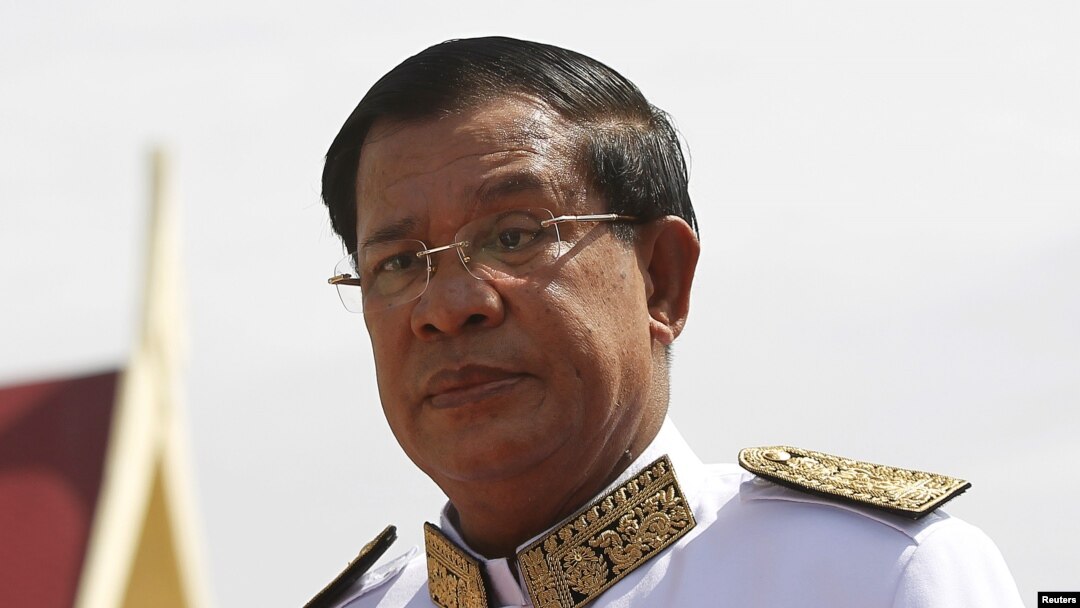As Cambodia marks the 24th anniversary of the Paris Peace Accords, Prime Minister Hun Sen says much of the country’s woes can be blamed on a U.S.-backed regime from the early 1970s.
That government, led by Lon Nol, ousted the late King Norodom Sihanouk in a bloodless coup in March 1970, only to fall to the Khmer Rouge five years later.
Speaking Thursday at a bridge inauguration with the Chinese ambassador to Cambodia, Hun Sen said the Lon Nol regime should be held responsible for the wars that followed before its collapse. He praised China, which has strong economic and political ties with Phnom Penh, for its support of Cambodia today, although he did not mention Beijing's role in supporting the Khmer Rouge.
Had it not been for the Lon Nol regime and its ushering in of the Khmer Rouge, the Paris Peace Accords would not have been necessary, Hun Sen said.
“If we had not had war in the 1970s, Cambodia would have developed further, but how do the creators of the war take responsibility?" he asked. "Tomorrow is the anniversary of Paris Peace Accords, so at least they take responsibility over morality if they don’t take responsibility for the damages and the deaths of millions of Cambodian people in the war and in the period of the genocidal regime of Pol Pot.”
His remarks, at the inauguration of a second bridge in the Chroy Changvar section of the city, alluded to the alleged U.S. role in toppling the former monarch, and the bombing campaign that followed.
Ou Virak, head of the Future Forum, a policy research group, said Hun Sen was referring to the U.S. and the “tons of bombs” it dropped on Cambodia, a portion of history that should be examined.
“If we want to step up to debate Cambodia from every angle and learn lessons, I welcome that, and I think it’s a good thing,” he said.
But he added that means one should also discuss the roles of China and Vietnam in the war years, including their support for the Khmer Rouge. Other discussions could touch on the debt incurred by Cambodia during its war years and its forgiveness, he said.
Son Soubert, a former member of the Constitutional Council, which interprets the Constitution and laws adopted by the National Assembly, said Cambodia was a “battleground” for superpowers in the past. The Paris Peace Accords put an end to that, he said, but they have not been fully implemented.
The 18 signatory countries to the accords should now review implementation of the accords, he said, “and ask Cambodia to reform the unfulfilled points, especially the issue of freedom of expression for the people.”
This report was produced in collaboration with the VOA Khmer service.


